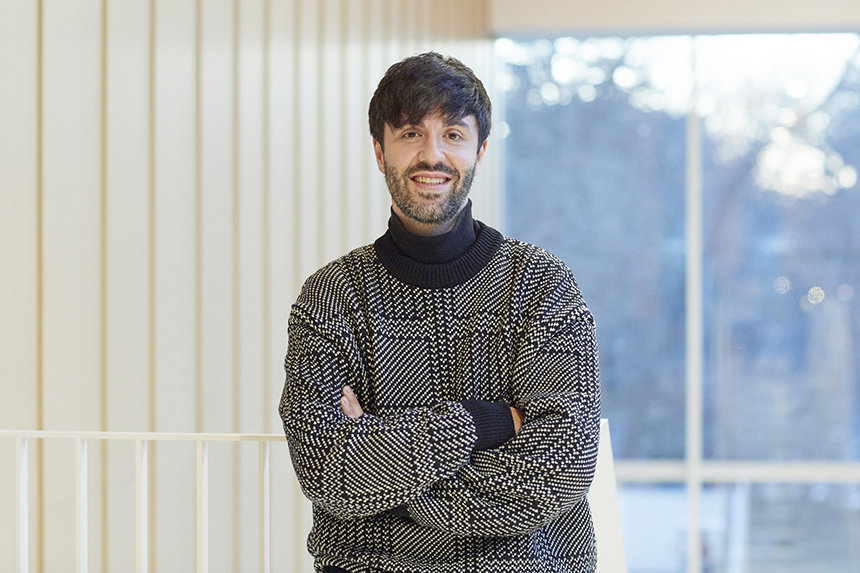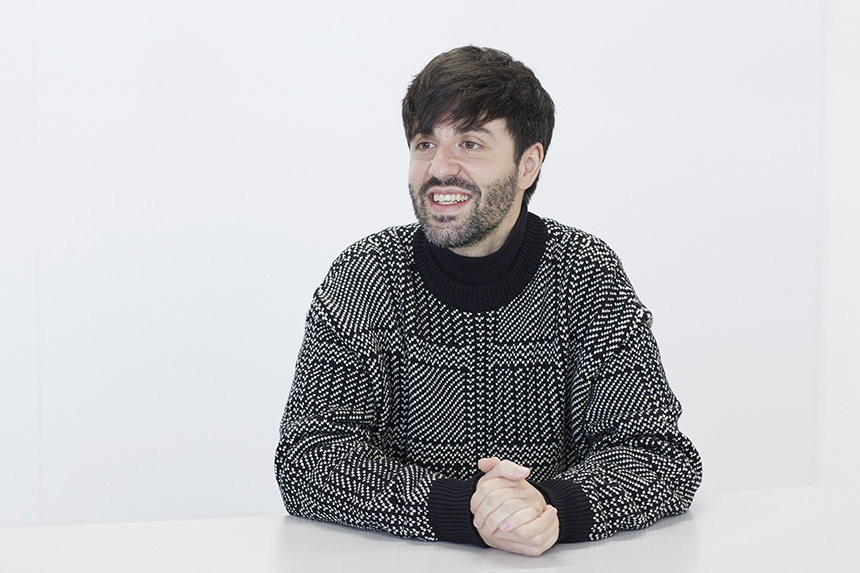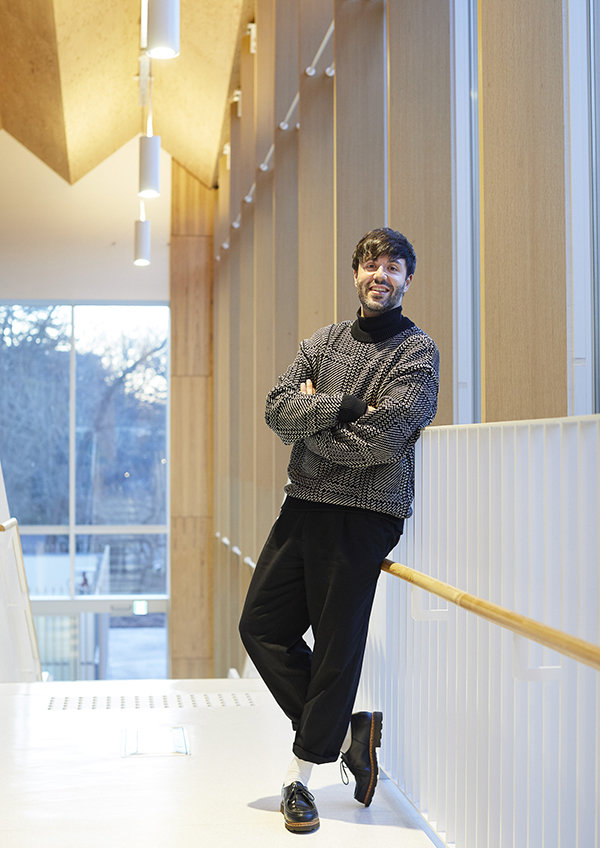T&C Strategy & Operations Manager,
Amazon Web Services, Inc.
2010 B.A. in Arts and Sciences (International Relations)
“Ability to Think by Yourself” “Ability to Find Problems and Solve Them” Nurture the Skills and Mindset Required to Operate Successfully in Any Environment.

Driven by a Desire to Help Build a Better Society
I currently work for Amazon Web Services (AWS), which provides a variety of cloud services worldwide. When a customer decides to use our cloud platform, AWS specialists provide training to that company's engineers so that they can advance their cloud skills and be more effective in the cloud. My role involves owning operations and strategy for the training & certification business in Japan. I joined AWS in fall 2020, because I wanted to be working at the world's largest cloud provider, at a time when remote working is becoming increasingly necessary in the wake of the COVID-19 pandemic.
I went through various stages in my career before reaching this point. Immediately after graduating from ICU, I joined a startup company in Singapore where I was involved in launching the business culture and growth strategy from scratch. Six months later, I was able to fulfill my dream of joining Google, where I worked in Ireland and Southeast Asia for 3.5 years, before transferring to Google Japan in 2014. After 7 years at Google, I moved to Mercari, where I spent 2.5 years working in the People Operations department. No matter where I am working, my underlying motivation has always been the desire to help build a better society.
For instance, at Google, I was driving all Google Japan's Engineering Diversity & Inclusion initiatives. My work involved increasing the pipeline of diverse engineers, and supporting their development towards becoming fully fledged Google Software Engineers. During my time at Google Japan, I also had several opportunities to share Google's work culture with Government agencies and Japanese companies. I myself was extremely satisfied with the high level of freedom and ownership that I enjoyed in my work at Google, but a significant number of my friends who had got a job at other companies struggled with overtime and less satisfactory working environments. I decided I wanted to help solve these problems with Japan's working culture. However, whenever I shared my know-how and advice with Japanese companies I would always get pushbacks, and be told things such as 'Google is an American company with a lot of resources. That approach to work won't be possible in a Japanese company.' This kind of thinking frustrated me.
It was exactly that feeling of frustration that made me decide to change jobs and join Mercari, since I felt I had to show that a people-first working culture could be implemented in a Japanese company. My thinking was that if this culture worked at Mercari, then other Japanese startups could follow suit. Mercari was still an unlisted Japanese startup at the time, but given it was Japan's only unicorn startup, it was frequently exposed to the media. I thought that Mercari could become a role model for other Japanese companies by adopting global standard organizational structures, and then open-source its best practices so that other companies could learn from it. I was a little hesitant to move away from the comfortable environment I had at Google, but I took the plunge and changed jobs because I wanted to take on this important challenge.
When I joined Mercari, the company's People Operations department only consisted of recruitment and payroll teams. I wanted to create a global standard organization, and to do that I set up several new teams, from Learning and Development, to Diversity & Inclusion, and People Analytics. At the same time I developed a strategy on how we could globalize our work environment and culture to scale beyond Japan. These initiatives gradually got off the ground and, after building an organization of 25 people to drive these workstyle reforms, I felt that they were able to continue that work without the need for me to be there anymore. Therefore, after two and a half years, I decided to move onto my next challenge. That's when I switched jobs to AWS, so that I could be of use to society by helping to develop Japan's cloud infrastructure and further advance the country's working culture.

Create Your Own Path
I was born and raised in Portugal. When I was 17, I developed a strong interest in Japanese language and history. After graduating high school, I attended university in Portugal for a year and then did a one-year exchange program at another university in Japan. That's when I decided that I wanted to study full-time at a Japanese university and so I entered ICU.
One of the key reasons why I picked ICU from a number of potential universities was because of the bilingual Japanese and English education it offered. At the time, I was concerned that my level of Japanese was not good enough for me to be able to graduate from a university that offered almost all its classes only in Japanese, so this was a really attractive point. I also love nature, and so I felt ICU's vast, leafy campus was a wonderful environment for learning. To be honest, another university offered me a place with 4 years fully paid scholarship, and my family wanted me to go there, but I had my heart set on ICU, so I searched for a scholarship myself and persuaded my family to let me go there.
When I actually got to ICU, I felt that it offered a truly diverse environment where students of many different nationalities studied together. Looking back on it now, ICU's campus was just like a global company. The university's teachings style focused on discussion, group work, and presentations, so I developed the ability to think for myself, discuss, and present ideas. In addition, ICU's liberal arts education enables you to freely select courses that suit your interests from a diverse range of fields. I developed the mindset of being responsible for creating my own path, which, in turn, helped develop my current career history.
I focused on studying international relations and sociology at ICU. I wrote my senior thesis on E-Waste: What it is and its Impact on the Developing World. I felt I wanted to research how smartphones and tablets, which were just coming on the market at the time, were being disposed of and processed and what impact that was having on society and people. One big development for me was meeting Professor Whitelaw (Gavin H. Whitelaw, former senior associate professor at ICU), who supervised my senior thesis. As a student of sociology, I was also looking at how my teacher viewed society and using that as a reference. As I went to discuss various problems and seek advice, I grew to respect him as a person in ways that went beyond his remit as a teacher. In addition to Professor Whitelaw, I also met many other teachers who I wanted to emanate, so I was really fortunate.
I also have strong memories of the interaction I had with my friends. There were many Japanese students in the dormitory where I was living, so I was able to learn about Japanese life and culture up close. I have countless fun memories of the times we played inter-dormitory soccer games or went in the communal baths together. When I look back at my university experience in general, I can say that I was able to learn firsthand how to build relationships with people of different nationalities and cultures.

Develop Your Own Thoughts and Solve Problems Through Dialogue
Throughout my career to date, I have often felt that I am using the lessons I learned at ICU in my job. I feel that my ability to think for myself or to identify and solve problems by myself, which I cultivated during ICU's critical-thinking and discussion-based classes, is particularly important when I work for a global company. At Google for instance, even new graduate employees aren't supposed to do only what their managers instruct them to, but instead are expected to take a proactive stance and seek out problems to solve by themselves. I often used to talk with my fellow ICU graduates about the similarities between ICU and Google cultures in this regard.
Another very important element of problem-solving is to adopt an approach of progress through open dialogue. It is likely that you won't all agree when cooperating with others, but it is at times like that, that you have to respect others' ideas, find common ground, and explore the best way to move forward together. The rich experience of that very process that I gained in ICU classes has really helped me be effective in the projects I was involved throughout my career.
When choosing a university, I would advise all students taking entrance exams to consider what the university you are trying to get into prizes above all else, whether those aims suit your own values, and what kind of field you want to move into in the future. I feel that my studies at university and the people I met there have had the greatest influence on the person I have since become.
I would also urge you to think carefully while you are at university about what you want to do in regards to your future job. If you have a clear vision in mind, you can avoid any mismatch in your job. I sincerely hope that each one of you will find exactly what you want during your four years of university life.
Profile
Daniel Silva
Amazon Web Services, Inc.
T&C Strategy & Operations Manager
2010 B.A. in Arts and Sciences (International Relations)
After graduating from ICU, Daniel worked at a startup company in Singapore before joining Google LLC in 2011, where he worked for seven years as an Account Manager of online advertising for Portugal and South Africa, Public Relations Senior Associate for Southeast Asia, People Programs Specialist, and as a Program Manager in the engineering department. In 2018, he moved to Mercari, Inc., where he worked as the Head of Global People Operations for approximately two and a half years. He has been working at Amazon Web Services, Inc. since September 2020.




